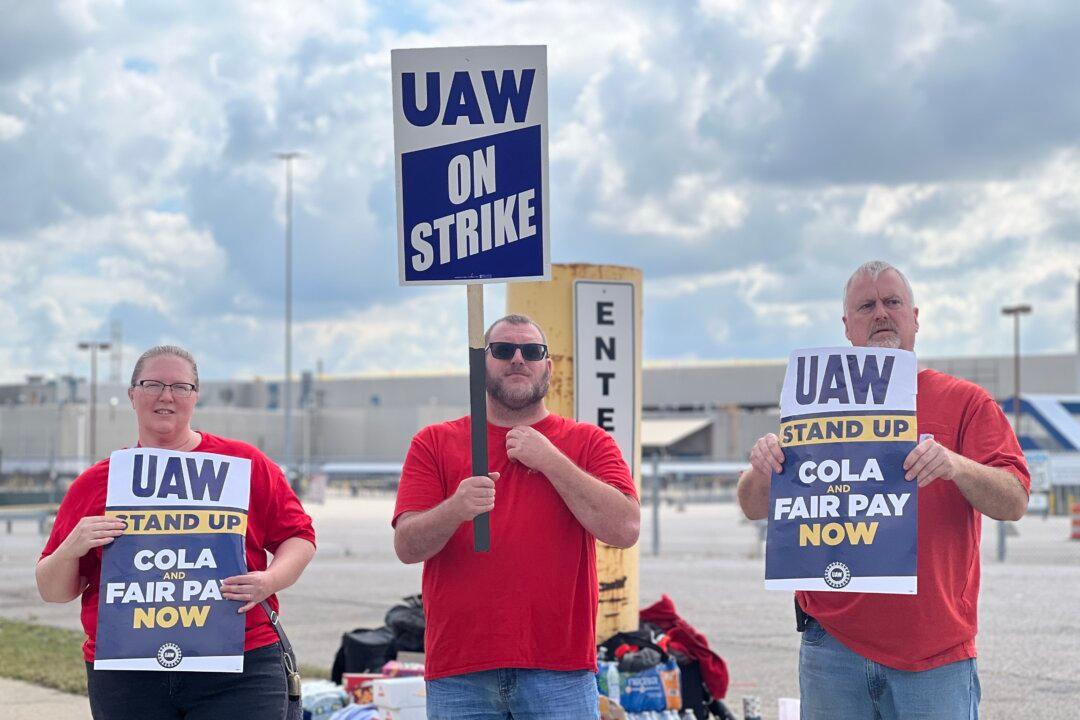United Auto Workers (UAW) at the “Big Three” automakers GM, Ford, and Stellantis have been on targeted strike since negotiations blew past the Sept. 15 deadline.
On Sunday, UAW president Shawn Fain revealed that Stellantis offered a 21 percent pay raise on Saturday, which the union rejected.





